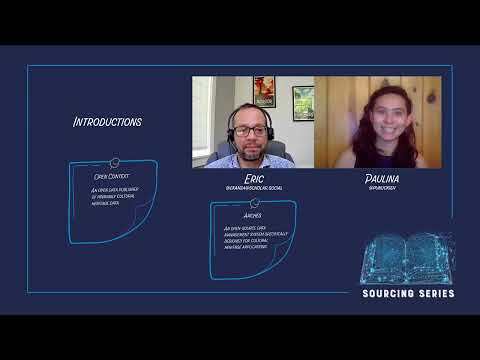#identifiers
Do you care about #context? Have you ever wanted to geek out about why #persistent #identifiers (#PIDs) matter in #archaeology ?
Look no further than this video where our postdoctoral fellow Dr. Paulina Przystupa leads an interview exploring naming, identity, provenance, and contextual integrity:
totally forgot, @KateShaw has a new episode out today, about animals that use names for each other in ways similar to how humans use names ... or maybe not quite the same
https://strangeanimalspodcast.blubrry.net/2025/01/13/episode-415-animals-with-names/
#dolphins
#communication
#parrots
#whistles
#names
#identifiers
#elephants
#marmosets
Celebrating 5 years of the Crossref Grant Linking System! The GLS connects #research outputs with unique #grant IDs, supporting open science. We recently talked with funders worldwide about its benefits. Read our latest blog: https://www.crossref.org/blog/celebrating-five-years-of-grant-ids-where-are-we-with-the-crossref-grant-linking-system/ #ResearchFunders #GrantsInfrastructure #Metadata #Identifiers
An article I co-wrote with @Kath_burton and Catherine Cocks was posted Friday: Recognizing and harnessing the transformational power of persistent identifiers (PIDs) for publicly-engaged scholars - https://content.iospress.com/articles/information-services-and-use/isu230212
Abstract: While more recognizable publishing models continue to be favored across academic research and publishing systems, the diverse forms of knowledge emerging from publicly-engaged projects derived from working directly with and for communities requires novel and more dynamic publishing solutions. This article considers how the appropriate application of metadata and persistent identifiers to the processes and outputs of engaged scholarship are required to support the goals of the publicly-engaged humanities, and potentially lead to faster and more effective forms of impact for the people and places involved.
Reusing Passwords: Not Only Security Implication, But Potential Deanonymization Concerns As Well (passwords can act as identifiers, when reused).
#Infosec #cybersecurity #privacy #passwords #identifiers #crypto #encryption #darknet #hiddenservices #Tor #I2P #anonymous
Many #programming languages permit #Unicode #identifiers. For long time I wondered, why anyone would do that: All the programming languages, all the common libraries use English to name their keywords and identifiers. Therefore using any other language for your own identifiers would appear inconsitent and odd.
Well, but how about this?
if (something_went_wrong)
throw mylib::_really_bad_error(...);
That stop sign emoji boldly stands out in your code and greatly highlights dangerous code.
@JulieNye I am a huge fan of discovery in all forms. And managing attention. I was just weighing on the idea that any of us can really anticipate with any accuracy what anyone objects to and can therefore somehow tag it accurately. It's just never going to work at scale. Preference has to be at the community and individual's level. Filters are find, but content level #identifiers will be impossible to standardize, normalize, police, or warn anyone with, with a few obvious exceptions.

